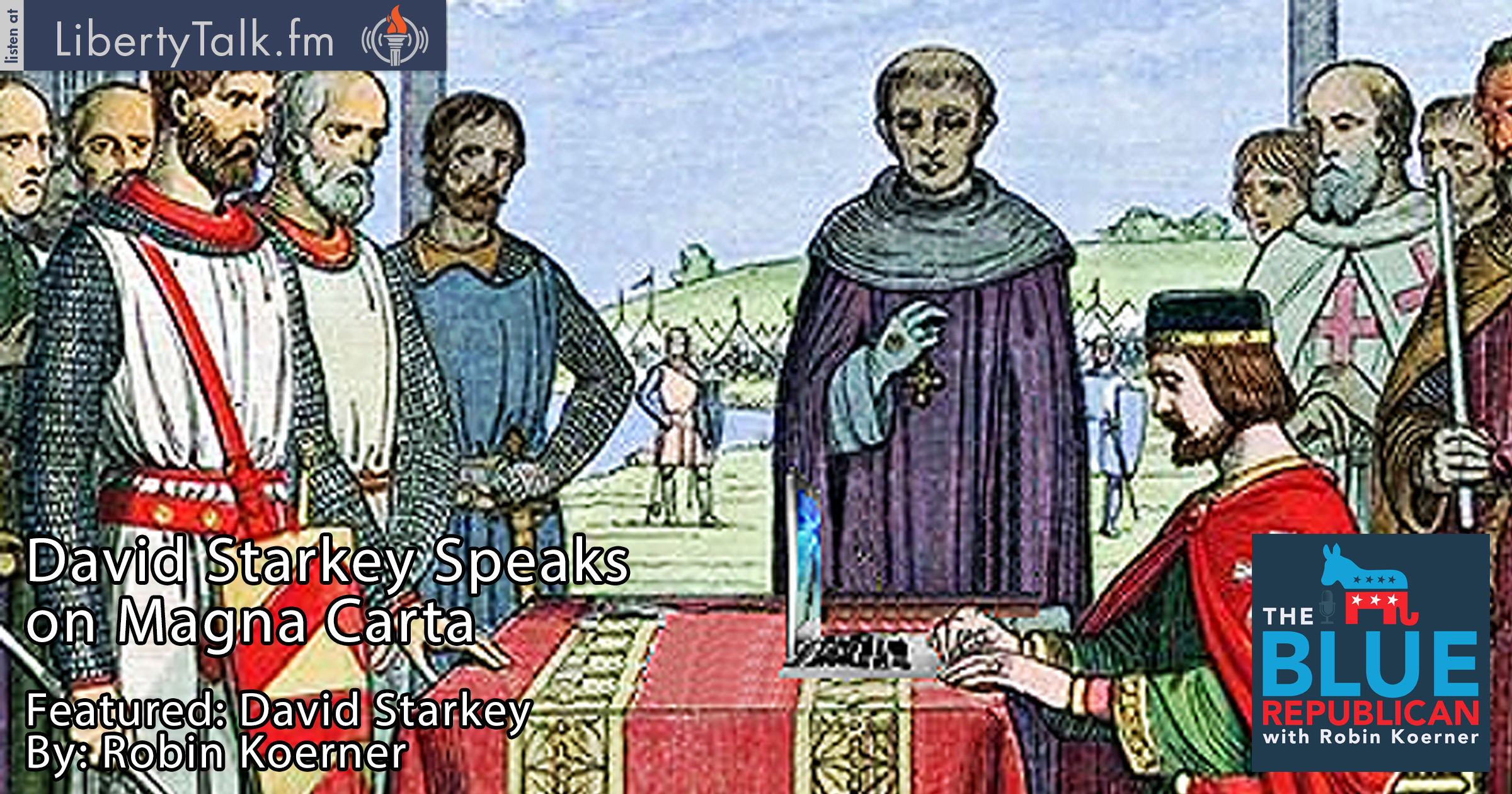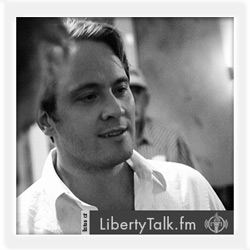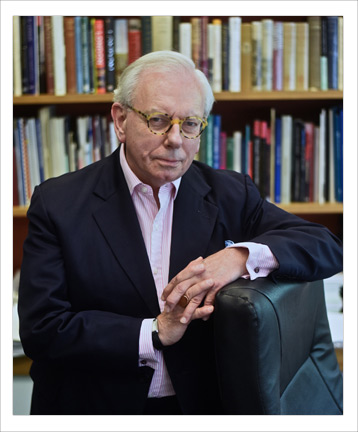
Podcast (blue-republican-robin-koerner): Play in new window | Download (38.6MB) | Embed
Subscribe Apple Podcasts | Email | RSS
Original air date: September 19, 2015
BY: Robin Koerner, Host
PUBLISHED: September 19, 2015
“Magna Carta – The Medieval Roots of Modern Politics”.
David Starkey’s central thesis is a fascinating one: that whereas there were dozens of Magna Cartas all over the world around the time of THE, our, Magna Carta, the English charter was unique not for what it asserted, but because it stuck. To see Magna Carta as a single event or document in 1215 is a mistake. Rather, the Magna Cart,a whose 800th anniversary we celebrate this year, is the start of a decade-long process, which produced the Magna Carta of 1225,which uniquely stuck because, unlike its first incarnation, it was agreed upon as a CONTRACT – not as a demand conceded under duress. That contract voluntarily entered into by the sovereign and the people, was made possible by the elimination of what David calls the awful, “revolutionary, republican”clauses. By being a consensual agreement that “traded” taxation for representation, it was an important milestone that would later be central to the American Revolution.
David explains, then, that the Magna Carta that stuck did so not so much because of the universality of the ideas that some people, largely wrongly, claim it seeded in Anglo political thought, but rather, because of the Method by which it was agreed upon – and the institutions that it caused to be established.
Fascinatingly, David makes some major claims about Natural Rights, and the identity of the true intellectual Founding Father of our nation – and it’s not who you think. It is, however, the man who was responsible the colonists’ very first Constitution… and someone whose life and work were all about Magna Carta…
About David Starkey

[Read David’s Full Bio] ⋅ [Follow David on Twitter] [Get David Starkey’s New Book – Here]



Tim Turner
Fascinating discussion.
Mr. Starkey’s evaluation that fundamental
human rights do not exist is incorrect. I address his paradigm that
there are two schools of thought, the Locke-school which says that in a
state of nature mankind is inherently good, while the Hobbes school says
that in a state of nature mankind is fundamentally bad.
The correct understanding is that in a state of nature, when mankind is not
involved
communally with other men, man is a moral. It is not that he is good,
but that he is incapable of being bad. Badness consists of violating
the fundamental rights of others, so when there are no others violations
cannot occur.
But when placed within a community, mankind
becomes capable of violating the rights of others. The purpose of the
state is to prevent violations of these rights, thereby keeping mankind
“good”. Goodness does not consist of doing or not doing a specific set
of rituals, but rather in not violating the right of others to do or not
do.
In discussing Twitter, Mr. Starkey is assuming that his
interpretations of “good” are the correct ones. Assuming that he is
correct, those offenses can only occur in a community. If a man alone
on the dark side of the moon were to say them, there could be nothing
offensive about them – no one could be offended.
The fact that
not all communities recognize the same human rights does not mean that
human rights do not exist. In the same way that the fact that Twitter
and Facebook don’t recognize the same interface doesn’t mean the
fundamental architecture of the internet doesn’t exist. It’s simply that
one culture may or may not be closer to the truth than the other.